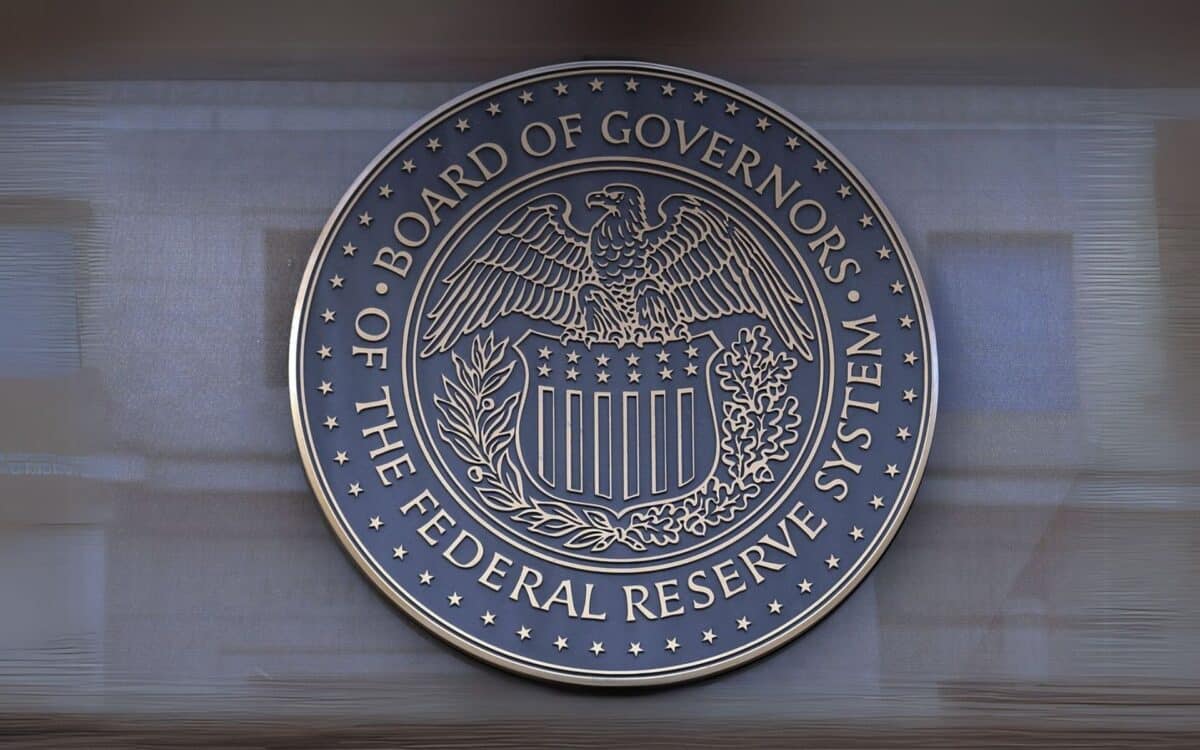Markets declined sharply on Wednesday following renewed concerns about inflation, trade policy, and slowing economic momentum. Investor sentiment deteriorated rapidly after Federal Reserve Chair Jerome Powell warned that newly imposed tariffs could raise inflation more than initially expected, complicating the outlook for monetary policy.
A disappointing forecast from Nvidia, which anticipates multibillion-dollar losses due to export restrictions, intensified the market’s downward trajectory, particularly among technology stocks.
According to CBS News, Powell’s comments at the Economic Club of Chicago reinforced the idea that the Fed would remain cautious before making any rate decisions, fueling further uncertainty around the administration’s evolving trade agenda.
Major Indexes Log Significant Losses
The S&P 500 dropped 120 points, or 2.2%, closing at 5,275.70. The Dow Jones Industrial Average fell by approximately 700 points, or 1.7%, while the Nasdaq composite suffered the steepest decline, down 3.1%.
Investors had been anticipating signs of a possible rate cut, but Powell emphasized restraint.
The financial markets were looking for some sign that the Fed might look to cut rates sooner, but instead, Fed Chair Powell suggested that patience was the best course – said Scott Helfstein, head of investment strategy at Global X.
Powell Outlines Cautious Approach Amid Trade-Related Inflation Risk
Speaking at the Economic Club of Chicago, Powell reiterated that the Federal Reserve is monitoring the situation closely but is not yet ready to adjust interest rates. He indicated that the scale of the new tariffs may be larger than initially expected, raising concerns about inflation and slowing growth.
We’re thinking now, really before the tariffs have their effects, (about) how they might affect the economy. That’s why we’re waiting really to see what the policies ultimately are, and then we can make a better assessment of what the economic effects will be – Powell explained.
He described the economic outlook as “uncertain“, highlighting the difficulty of formulating policy responses while the full implications of the tariffs remain unclear.
Semiconductor Sector Sees Steep Losses
The technology sector, particularly semiconductor manufacturers, bore the brunt of the selloff. Nvidia led the losses, falling 6.9% after reporting that new U.S. restrictions on exporting its H20 chips to China could cost the company $5.5 billion in the first quarter alone.
The financial hit is tied to inventory write-downs and purchase commitments affected by the new export controls.
Advanced Micro Devices (AMD) reported a potential impact of up to $800 million, similarly tied to chip restrictions. Its shares declined by 7.4%.
In Europe, Dutch semiconductor equipment supplier ASML saw its stock fall 7%. CEO Christophe Fouquet said that despite strong demand for AI-related technologies, the trade environment has become more volatile:
However, the recent tariff announcements have increased uncertainty in the macro environment and the situation will remain dynamic for a while.
Broad Corporate Disruption and Unpredictable Outlook
Trade policy volatility is forcing companies to adjust their outlooks. United Airlines issued two separate financial forecasts—one assuming a recession and one not—citing unprecedented uncertainty :
Impossible to predict this year with any degree of confidence – the company stated.
Even businesses reporting solid results were affected. J.B. Hunt Transport Services, a major U.S. freight carrier, lost 7.7%, despite exceeding earnings expectations.
Global Trade Outlook Dims as WTO Warns of Contraction
The World Trade Organization (WTO) revised its forecasts downward. If trade conditions remain unchanged, world merchandise trade volume is expected to decline by 0.2% in 2025. A worsening of the situation could trigger a 1.5% drop.
Ngozi Okonjo-Iweala, Director-General of the WTO, emphasized the broader implications:
The enduring uncertainty threatens to act as a brake on global growth, with severe negative consequences for the world, the most vulnerable economies in particular.
Retail Surge May Precede Spending Pullback
Consumer behavior in the United States has already responded to inflation fears. Retail sales jumped 1.4% in March, up from 0.2% in February, as households accelerated purchases of automobiles, electronics, and other durable goods in anticipation of price increases.
While March’s surge supported short-term growth, economists warn that pessimism among consumers—revealed in recent surveys—could lead to a future pullback in spending, posing a risk to the broader economy.
Treasury Yields Retreat as Investors Brace for Slower Growth
In the bond market, yields fell sharply. The 10-year Treasury yield dropped to 4.27%, down from 4.35% on Tuesday and 4.48% last week, reflecting growing investor caution.
Last week’s unexpected rise in yields had unsettled markets and reportedly caught the attention of the White House. The reversal toward lower yields signals renewed concerns about economic growth and a reevaluation of U.S. government bonds as safe-haven assets amid trade tensions.









